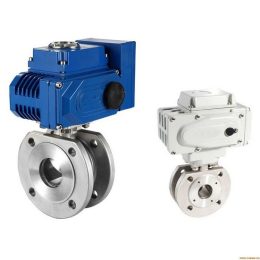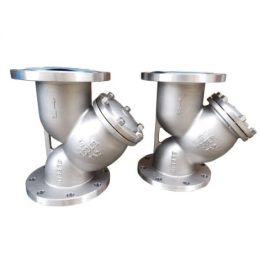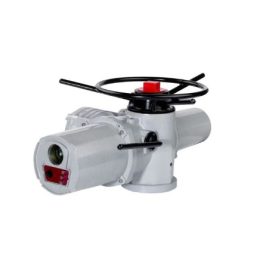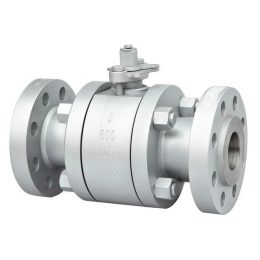What is the Bronze Ball Valve?
If you work in an industrial setting, you may have heard of a bronze ball valve. But what is it exactly, and why is it so widely used? In this article, we’ll explore the ins and outs of bronze ball valves, including their benefits and typical applications.
Introduction
Ball valves are used in a wide variety of piping systems to control the flow of liquids and gases. These valves are made of different materials, including brass, stainless steel, and bronze. Bronze ball valves are particularly popular in commercial and industrial settings because of their durability, low maintenance cost, and versatility.
What is a Bronze Ball Valve?
A bronze ball valve is a type of ball valve made from bronze metal. It features a full threaded end, which means that it cannot fit through a standard pipe. Bronze ball valves are commonly used in industrial applications, such as hydraulics, pneumatics, and fire protection.
These valves are manufactured with stainless steel valve assemblies to resist galvanic corrosion. Solid bronze valves are more durable than common brass ball valves and can withstand galvanic corrosion. Additionally, bronze ball valves feature NPT threads that fit most Thru-Hull Intake and Street Elbow fittings, making them an excellent choice for a variety of industrial and commercial applications.
Applications of Bronze Ball Valves
Bronze ball valves are versatile and can be used in a wide range of applications requiring quick flow control. Some of the typical services for bronze ball valves include low-pressure steam, compressed air, and hot and cold water. They are also considered standard valves for natural gas systems. These valves are used in systems for saltwater, sanitation, trim and drain, air, hydraulics, and oil transfer.
Benefits of Using Bronze Ball Valves
There are many benefits of using bronze ball valves in your industrial or commercial setting. One of the main benefits is their durability. Bronze is highly malleable and ductile, making it an excellent material for valves. Additionally, bronze is corrosion-resistant and can handle high temperatures, high pressure, and a range of other conditions.
Bronze is also known for its exceptional antimicrobial property, making it ideal for chemical and water systems. This property is particularly important for potable water systems, where copper has been believed to purify drinking water since ancient times.
Another advantage of using bronze ball valves is their cost. Bronze valves are cheaper than brass ones, yet they offer comparable performance and durability. Additionally, bronze is resistant to acid and alkaline foods, making it an excellent choice for low-temperature systems.
How to Choose the Right Bronze Ball Valve
When selecting a bronze ball valve for your application, there are several factors to consider. First, you need to determine the size of the valve needed to match your piping system. You also need to consider the pressure and temperature requirements of your system to ensure that the valve can handle them.
Another factor to consider is the type of seat material used in the valve. Some bronze ball valves feature a PTFE seat, while others have a bronze body and chrome-plated brass balls. You also need to look for valves that are NSF-61 certified or ANSI-NSF-372-certified if you plan to use them in potable water systems.
Maintenance of Bronze Ball Valves:
Bronze ball valves require low maintenance due to their durable and corrosion-resistant nature. However, it is still important to perform periodic maintenance to ensure the valves are functioning properly. Regular maintenance includes cleaning and lubrication of the valve components. This helps to prevent corrosion, reduce friction, and ensure the valve operates smoothly. It is also important to check for leaks, cracks, and other damages that may occur over time.
Common FAQs about Bronze Ball Valves:
- What is the difference between bronze and brass ball valves? Bronze ball valves are made of copper and other metals such as tin, aluminum, and nickel. Brass ball valves, on the other hand, are made of copper and zinc. Bronze ball valves are more durable and resistant to corrosion, making them suitable for industrial applications.
- Are bronze ball valves safe for drinking water systems? Yes, bronze ball valves are safe for drinking water systems. However, it is important to ensure that the valve is certified by NSF-61 or ANSI-NSF-372 to meet the minimum requirements for lead in drinking water.
- What are the common applications of bronze ball valves? Bronze ball valves are commonly used in piping systems for saltwater, sanitation, trim and drain, air, hydraulics, and oil transfer. They are also considered standard valves for natural gas systems.
- What is the working pressure range of bronze ball valves? The working pressure range of bronze ball valves varies depending on the size and material of the valve. Generally, they can withstand working pressures ranging from 150 to 600 psi.
- How do I install a bronze ball valve? Bronze ball valves are easy to install and require no special tools. Simply thread the valve onto the pipe and tighten with a wrench.
- Socket Welding Check Valves: A Comprehensive Guide
- Understanding Pressure Seal Gate Valves: Design, Features, and Applications
- Types of Butterfly Valves: A Guide to Choosing the Right One
- Ball Valve Specifications And Functions: Everything You Need To Know
- A Lift Check Valve and Its Applications
- Valve Body And Bonnet Leakage



